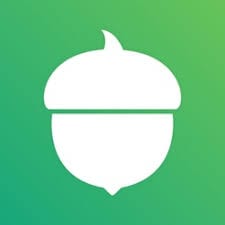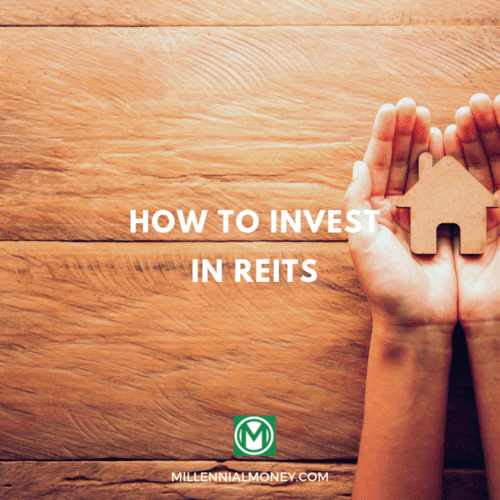If you’re looking for an easy way to build your investment portfolio, both Robinhood and Acorns might very well be on your radar. Deciding between these two investing apps might not always be easy as each one has its own sets of strengths and, to some extent, weaknesses to consider.
To help you make the best decision for yourself, in this article, we’ll put the two against each other to give you a clearer and deeper picture. Will there be a winner?
Join us for the ultimate Robinhood vs Acorns comparison showdown.
Robinhood vs Acorns: How To Choose
To help you choose the best fit for you, we will be looking at what both investment apps have to offer. We will consider what products each app has, as well as its features and how everything works.
While we like both apps, you need to carefully consider your current financial situation and what you hope to get out of investing before making your final choice.
While both Robinhood and Acorns offer their users easy ways to invest, the approach they take is slightly different. We can see this in the products they offer as well as the features included in these products.
Understanding what each platform offers is the first step to understanding which one of these two platforms might be the best option for you.
Acorns Products
Acorns offer five different products:
- Acorns Invest
- Acorns Later
- Acorns Spend
- Acorns Earn
- Acorns Grow
Access to these products will depend on the type of account you sign-up for. Understanding what products are available can also help you choose the type of account you need. Without further ado, lets now look at each product Acorns offers individually.
1. Acorns Invest
Acorns Invest is the main investment program on offer by Acorns. You can use Acorns Invest to build your investment portfolio with a number of different strategies and ETFs.
With Acorns Invest, you connect your credit card or debit card. Whenever you make a purchase, Acorns rounds up the total to the nearest dollar and saves the difference. Once the total savings reach $5.00, Acorns invests the money for you according to the ETFs and strategies you have chosen.
If you want to save even more money, Acorns Invest has a few tricks up its sleeve to help you do just that. One such feature is the Multipliers where you can multiply the round-ups you save and invest.
2. Acorns Later
With Acorns Later, you can start saving your retirement. You can choose one of the three IRAs (Individual Retirement Account) available to help you save money for later in life.
Roth IRA
To qualify for a Roth IRA, you need to be making less than $135,000 annually. The maximum contribution you can make is $5,500 if you are under 49. Contributions to a Roth IRA are not tax-deductible, but the fund will grow tax-free. You can also receive 1% match with the personal plus plan or a 3% match on new funds with the premium plan.
Traditional IRA
With a traditional IRA, your contributions are tax-deductible. Earnings are subject to tax upon retirement withdrawal. According to the IRS, the retirement age is 59.5. You may incur penalties should you withdraw before retirement age.
Learn More: Read our review of all the Best IRA Accounts of 2021.
SEP IRA
SEP IRAs are designed for self-employed. Just like a traditional IRA, contributions are tax-deductible and will be taxed upon retirement. You can contribute up to $55,000 a year or 25% of your earnings – depending on which is the lesser amount.
If you are not sure which type of IRA is best for you, do not worry as Acorns will choose the one that’s right for you.
3. Acorns Spend
Acorns Spend is a checking account with a debit card and a number of features designed to help you save on hidden fees while growing your investments.
Acorns Spend comes with built-in ‘acorns.’ This is the round-up system on which Acorns is built to help you save money as you spend it. You also get up to 10% cashback when purchasing from participating local businesses to help you save and invest more money.
Other Features of Acorns Spend Include:
- Free bank transfers
- No overdraft or minimum balance fees
- Visa debit card
- FDIC-insured account (up to $250,000)
4. Acorns Earn
Acorns Earn is a cashback program that earns you rewards when shopping from Acorns partners. Currently, there are over 350 partners, and you will need to link your credit card or debit card to your Acorns account.
The cash backs you earn are called Found Money and can take up to 120 days to show up in your account. There’s also a Chrome Extension available that can show you offers available to you as you browse the internet and shop from your computer.
5. Acorns Grow
In many aspects, Acorns is a good fit for the newbie investor looking to understand the world on finance more and more. To help its customers, Acorns also offers a platform called Acorns Grow. With many useful articles about saving, investing, earning, spending, and borrowing, you can grow your financial acumen while improving your financial situation for even more wins.
Acorns Plans
When it comes to accounts, Acorns offer three different types of accounts – Bronze, Silver and Gold.
Aside from the difference in pricing, there is also a difference in the features included within each plan. We will now look at each plan individually to understand the differences between the three.
Bronze
The Acorns Bronze plan is the cheapest option of the three at $3.00 per month. Out of the other products Acorns offers, the Personal Plan only includes the Acorn Invest and Acorns Earn. You will also get access to many articles written by financial experts. This can help you grow your financial knowledge and save even more money while growing your investments.
Silver
The Acorns Silver plan bumps up the monthly fee from $3.00 to $6.00. It includes everything that comes with the Bronze Plan but also adds a Acorns Later retirement account with a 1% IRA match on new contributions, and Acorns high yield checking and savings features.
Gold
The Acorns Gold Subscription bumps up the monthly fee to $12. It includes everything that comes with the Silver Subscription but the Acorns Later retirement account comes with a 3% IRA match on new contributions. You’ll also receive kids banking accounts and the ability to pick individual stocks to add to your portfolio.
Acorns Investments
Acorns uses a combination of ETFs and Investment Tiers to help you build your portfolio. The investment tier you choose, which represents how much risk you are willing to take, will determine what kind of ETFs your money will be invested in.
ETFs
ETFs, which is short for Exchange-Traded Funds, is a collection of stocks and bonds bundled together to create an investment. When investing in an ETF from Acorns, you’ll be glad to know what these were created by Dr. Harry Markowitz, who won the Nobel Memorial Prize in Economic Sciences in 1990. As for the portfolios, these have been structured by industry giants Vanguard and BlackRock.
Acorns Portfolios
The available Acorns Portfolios are structured according to the risk they present. They start at Conservative – where you can expect modest gains at low risk, all the way to Aggressive – which represents a considerably higher risk but can also grow much faster.
5 Acorns Portfolios
| Conservative Portfolio | |
| Asset Class | Percentage (%) |
| Short-term Government Bonds | 40% |
| Ultra Short-Term Government Bonds | 20% |
| Ultra Short-Term Corporate Bonds | 40% |
| Moderately Conservative Portfolio | |
| Asset Class | Percentage (%) |
| Government Bonds | 30% |
| Corporate Bonds | 30% |
| Real Estate Stocks | 4% |
| International Large Company Stocks | 8% |
| Large Company Stocks | 24% |
| Small Company Stocks | 4% |
| Moderate Portfolio | |
| Asset Class | Percentage (%) |
| Real Estate Stocks | 6% |
| Government Bonds | 20% |
| Corporate Bonds | 20% |
| Emerging Market Stocks | 3% |
| Small Company Stocks | 10% |
| Large Company Stocks | 29% |
| International Large Company Stocks | 12% |
| Moderately Aggressive Portfolio | |
| Asset Class | Percentage (%) |
| Real Estate Stocks | 8% |
| Corporate Bonds | 10% |
| Government Bonds | 10% |
| Emerging Market Stocks | 4% |
| Small Company Stocks | 14% |
| Large Company Stocks | 38% |
| International Large Company Stocks | 16% |
| Aggressive Portfolio | |
| Asset Class | Percentage (%) |
| Real Estate Stocks | 10% |
| Emerging Market Stocks | 10% |
| Small Company Stocks | 20% |
| Large Company Stocks | 40% |
| International Large Company Stocks | 20% |
Acorns Portfolio Rebalancing
Once your money is invested, that investment will grow or shrink depending on the performance of the underlying ETFs, stocks, and bonds. To keep everything in check, Acorns will, from time-to-time, rebalance the portfolio. This is important so that the portfolio keeps the same risk level as when you set it up.
To give an example, let’s assume you chose the Moderately Conservative Portfolio and have been investing your saved acorns across these asset classes. Over the course of a few months, real estate stocks start performing really well and accumulate enough value that they exceed the allocated 4%.
While this is good, your portfolio is now exposed to bigger risks as real estate stocks are inherently riskier than say government bonds. To keep things in check, Acorns will sell excess real estate stock and invest that money in additional government bonds to keep the moderately conservative risk appetite that you are comfortable with.
The good thing about this is that all of it is done in the background. The only effort you will have to make is to continue about your daily life doing your regular shopping, and Acorns will take care of the rest without worrying about the performance of each asset class in your portfolio.
In most circumstances, this is done on a quarterly basis. On occasion, a withdrawal or a deposit may trigger a rebalancing exercise to keep everything healthy and in check.
Key Features of Acorns
- Automatic investing through spare change roundups
- $5.00 account minimum to start investing with the Acorns app
- Retirement plans available
- No cryptocurrencies
- Fractional shares available
Learn More:
Robinhood Products
Robinhood offers a more hands-on approach to investing, and we can see this from the products they offer. There are 4 products on offer, including:
- Stocks and Funds
- Options
- Crypto
- Cash Management
These also have three account options that start from Robinhood Cash, going to Robinhood Instant, and Robinhood Gold. Unlike Acorns, you don’t get access to more products when you upgrade. Instead, you will get better terms on the products that you already use.
1. Stocks and Funds
Robinhood Stocks and Funds offers you unlimited commission-free trades on stocks, mutual funds, ETFs, and options in an individual taxable account (also known as a brokerage account).
If you want to invest in stocks that are out of your budget, Robinhood also offers fractional shares. Here you will be able to buy a fraction of a share, giving you the opportunity to invest in a company whose shares would otherwise have been out of reach.
2. Options
Through options, as the name suggests, you get the option of buying or selling an underlying asset. The asset can contain a number of things, including stocks and commodities. Options can be particularly useful to hedge risk as part of a wider strategy.
3. Crypto
Use Crypto to trade cryptocurrencies 24/7. There are a few different currencies available, including Bitcoin, Ethereum, and DogeCoin, as well as a number of others. Robinhood does not charge any commissions, and any deposited funds are made available immediately for cryptocurrency trading.
Do keep in mind that Robinhood cryptocurrencies trading is not available in all states. As such, if this is something that is important for you, do check availability before going forward with a Robinhood account.
4. Cash Management
Cash Management offers a cash account that comes with a Mastercard credit card and an APY (Annual Percentage Yield) of 0.30%. Robinhood keeps your money in a number of different bank accounts with interest paid monthly.
Cash Management account features
- FDIC insured up to $250,000 per bank
- Over 75,000 fee-free ATMs
- No minimum balance
- No transfer fees
- Interest paid monthly
Robinhood Plans
Robinhood offers a number of different plans to help you find the right fit for your investing needs. We will now look at what each one has to offer.
Robinhood Cash
Robinhood Cash is the most basic account Robinhood offers its customers. Do keep in mind that new accounts are Robinhood Instant accounts, which means that you will need to downgrade to Robinhood Cash. You can do this at any time. Robinhood Cash account does not offer instant deposits or settlements and is not a margin account.
Robinhood Instant
Robinhood Instant is the default account type. This margin account offers instant deposits and fast settlements when selling stocks or making deposits of up to $1,000.
Robinhood Gold
Robinhood Gold is the highest-tier account on offer. Unlike Cash and Instant, Robinhood Gold is not free and will run you $5.00 a month. For this fee, you will get bigger instant deposits, access to research, and investing on margin.
Robinhood Investments
Robinhood offers a more hands-on approach to investing. Because of this, you will find a few different investment opportunities aside from ETFs. Neither does Robinhood offer risk portfolios. Instead, it is up to you to diversify and hedge your portfolio in such a way that reflects your investment expectations.
- Stocks. A number of stocks from major companies listed on NASDAQ and NYSE
- ETFs. Exchange-Traded Funds as available on NASDAQ and NYSE
- Options Contracts. Available on Stocks and ETFs
- Cryptocurrencies. Invest in a number of cryptocurrencies including Bitcoin and Ethereum
- ADR is short for American Depository Receipts with over 250 available from global companies
Order Types
These are the different types of orders that you can place through your Robinhood account:
- Market Order. Market orders are filled upon reaching the next best price
- Limit Order. Limit orders put a limit on the maximum buy and minimum sell prices
- Stop Loss Order. Stop loss orders force a buy or a sell when a specific price is reached
- Stop Limit Order. Stop limit order limit orders upon meeting a specific price
With Robinhood, it is up to you as an investor to understand which financial assets you should buy and sell. If you need help understanding the finer details, Robinhood also offers a healthy library of articles through their learning center with useful information about the world of investing and finance in general.
Key Features of Robinhood
- Different financial assets to invest in
- No minimum to start investing
- Retirement plans not available
- Cryptocurrencies available
- Fractional shares available
Learn More:
Acorns vs Robinhood: Side By Side Comparison
Now that we have discussed the different features of each app, let’s do a side by side comparison to help you understand the differences and commonalities between the two.
Use this chart to quickly compare the main differences between the two apps.
| Robinhood | Acorns | |
| Minimum Balance | None | None |
| Minimum Investment | $1.00 | $5.00 |
| Investment Strategy | Transfer funds to invest in stocks, ETFs, Options, and Cryptocurrencies | Rounds up spending; Automatically invests in chosen portfolio |
| Account Options and Pricing | Robinhood Cash – $0
Robinhood Instant – $0 Robinhood Gold – $5 monthly |
Acorns Bronze – $3 monthly
Acorns Silver – $6 monthly Acorns Gold – $12 monthly |
| Cash Account | Yes | Yes |
| Retirement Account | No | Yes |
| Crypto | Yes | No |
| Fractional Shares | Yes | Yes |
Why Invest?
Investing has never been as easy as it is today. From saving for your retirement to improving your financial standing, investing can be both easy and fun.
Both Robinhood and Acorns offer an easy and accessible entry into the world of investing. In many ways, Robinhood pioneered this. Before apps like Robinhood and Acorns became available, investing in stocks and EFTs meant you have to find a broker who would then place the order on your behalf.
In more ways than one, Robinhood and Acorns are democratizing investing.
FAQs
Now we answer some of the most frequently asked questions when it comes to choosing between Robinhood and Acorns.
Is Robinhood or Acorns better?
Because Robinhood and Acorns take a slightly different approach to investing money, the better option is going to be the one that best suits your circumstances and financial health.
If you are looking for something that is more hands-off, then Acorns is going to be the better option for you. If you prefer to have a greater degree of control on your investments, you might want to look into Robinhood as the better fit for you.
What is the difference between Acorns and Robinhood?
While both Acorns and Robinhood are excellent investment platforms, the approach they take is very different. Understanding this difference, as well as your situation and circumstances, can help you make the right choice.
Acorns is more suited for beginner investors who need the assistance of robo-advisors when it comes to investing. With expertly-designed asset classes and risk-based EFTs, getting started in the world of investing is very easy with Acorns.
Robinhood, on the other hand, offers more freedom. It’s great both for those who are just starting out with investing – and the seasoned investors that have been investing in the stock market for a while.
Is Acorns a good investment?
Acorns is definitely a good investing product. It’s safe, secure, intuitive, and easy to use. It’s great for those looking to start investing – and those looking to discover how fun it is. Though it won’t be the ideal investment app for everyone. If you want lots of investment options (and a lower fee on smaller balances), then other options like Betterment or Wealthfront might be better.
What is better than Robinhood?
As a user of Robinhood, I do think it’s a great investment app – and a fantastic option for new investors as well as those who are not new to the game, and have had an investment account elsewhere. The thing I really like about it is that it makes me a better investor – I think that’s super important. When asked what’s even better than Robinhood, I always say that depends on what you’re looking for – each investment app is different.
Check out my list of best investment apps for 2025 – you’ll see the likes of apps like Betterment and Stash on this list. At the end of the day, it’s your call – and sometimes the best thing you can do with a mobile app is to try it first before deciding if it’s for you.
Robinhood vs Acorns: Which App Is Best For You?
Both investing platforms offer a whole lot of great features that can definitely improve your personal finance by opening the doors to investing – but they are quite different.
If you just want to start integrating investing into your everyday life with most of it done automatically for you, then a cool micro-investing app like Acorns is a great option to try. With its spare change round-up feature that invests money for you, you’ll feel less of a pinch and be able to gradually grow your portfolio.
You also won’t need to worry about high management fees as Acorns charges only $1 a month. Though for someone who’d like more control over their investments, there’s no option to invest in individual stocks, mutual and index funds, or bonds with Acorns – so if that’s you, it may not be the best investment app for you.
On the other hand, if you’re interested in stock trading and managing your own portfolios, and want more investment options, then the Robinhood investment app will likely offer you a better and more fruitful experience. You can choose from different financial instruments, including cryptocurrencies, as is FDIC insured.







No comments yet. Add your own